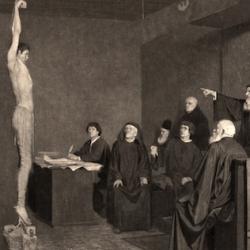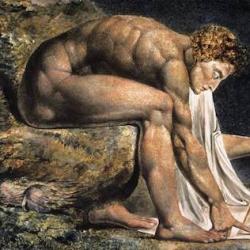It is widely believed that if the world is a causally closed system, then God cannot be involved in the world. He cannot introduce new information.
William Dembski (Being As Communion) disputes the conclusion. He concedes that “causal closure in a deterministic universe precludes what may be called substitutional intervention. In other words, it precludes God (or any other nonmaterial being) from overriding the causal structure of the world by bringing about effects that would otherwise not have happened” (117).
Yet even this doesn’t rule out the possibility that God has pre-arranged “the initial structure of the world so that desired material effects are achieved even if they appear extraordinary and bespeak a deity active in the particulars of the moment. All that is required is that God build in the necessary information from the start so that it gets expressed at appropriate times and places.” He invokes Augustine’s notion of “seeds” in nature “that come to fruition at appointed times and places” and Charles Babbage’s argument that “God implanted nature with computational programs that activate at the right time and place” (117-8).
This point has massive implications, not least for Christian apologetics: It means that “a world open to direct, real-time divine intervention could be empirically indistinguishable from a causally closed world that operates by unbroken natural laws . . . provided that God, from the start, is able to precisely arrange the unfolding of events.” It’s an Enlightenment ruse to say “we must choose between a world whose causal structure is ruled by unbroken natural laws or a god who supernaturally intervenes in the world.” This also means that “God can . . . get information into the world without performing miracles. . . . even in a world whose material arrangement is entirely deterministic, God could so arrange its initial and boundary conditions that it unfolds precisely according to plan” (119-20).











